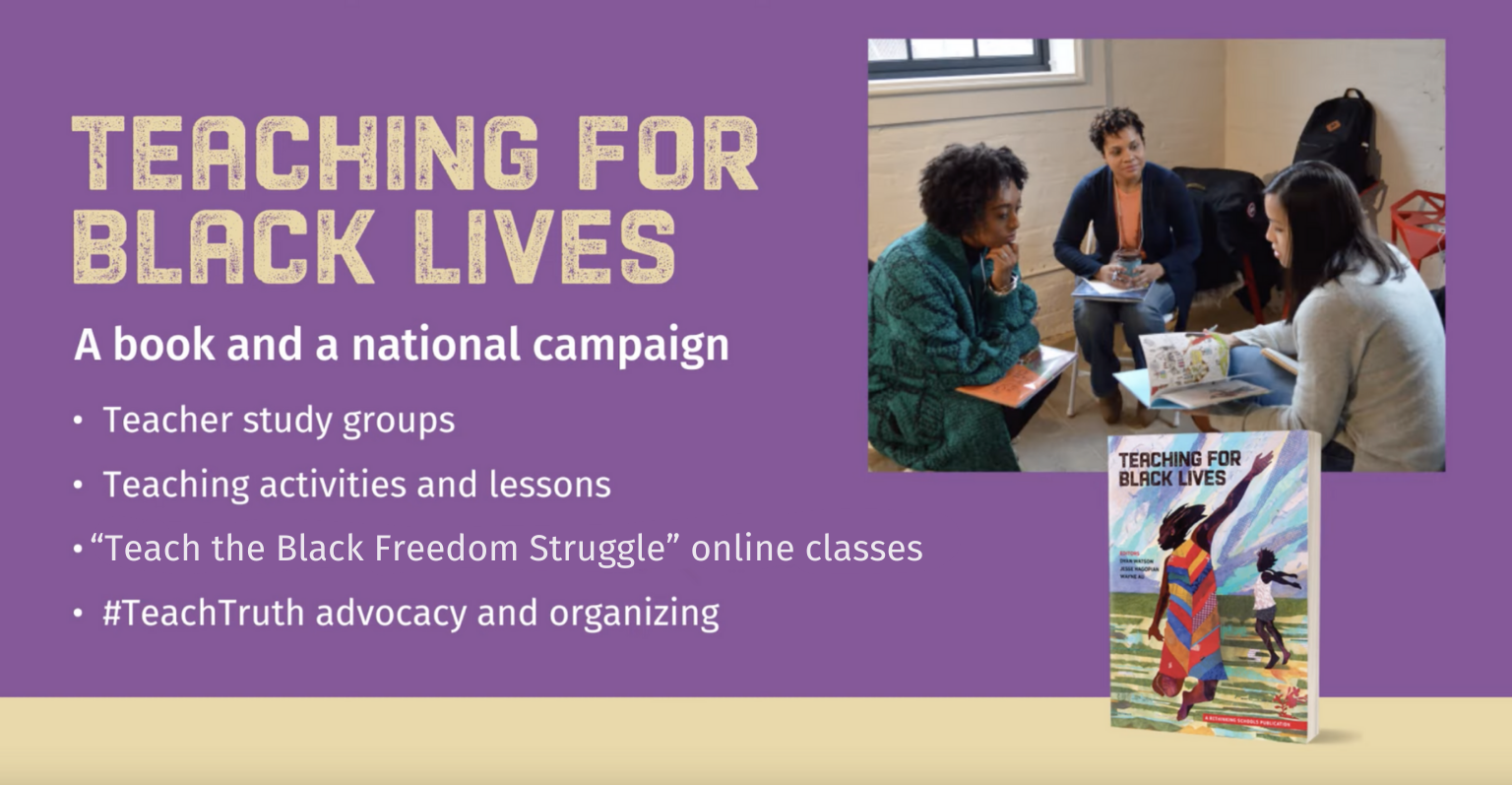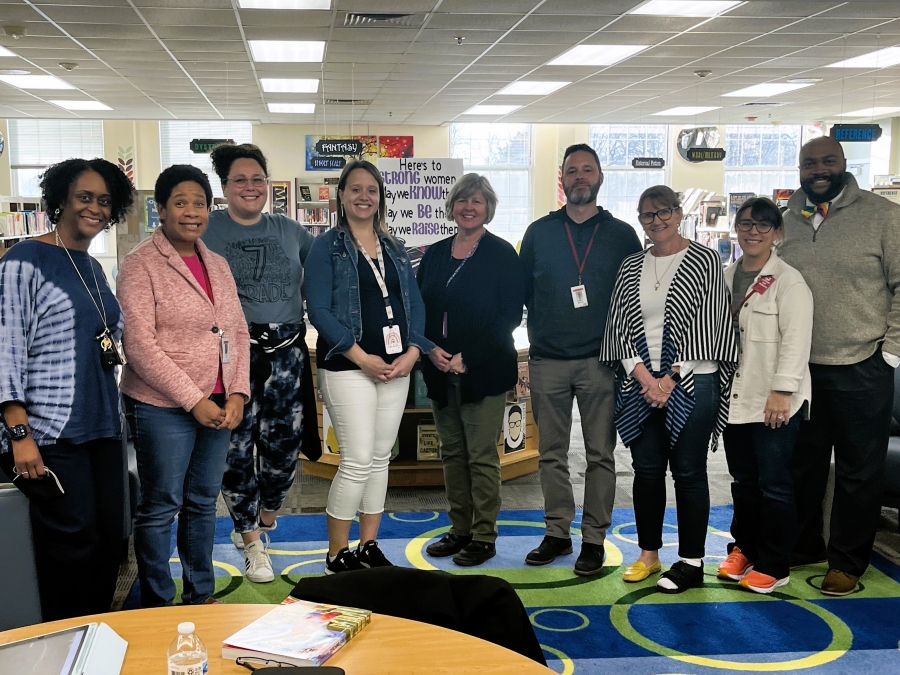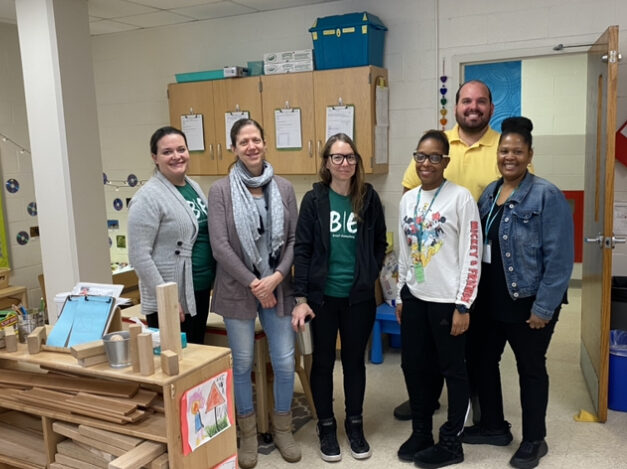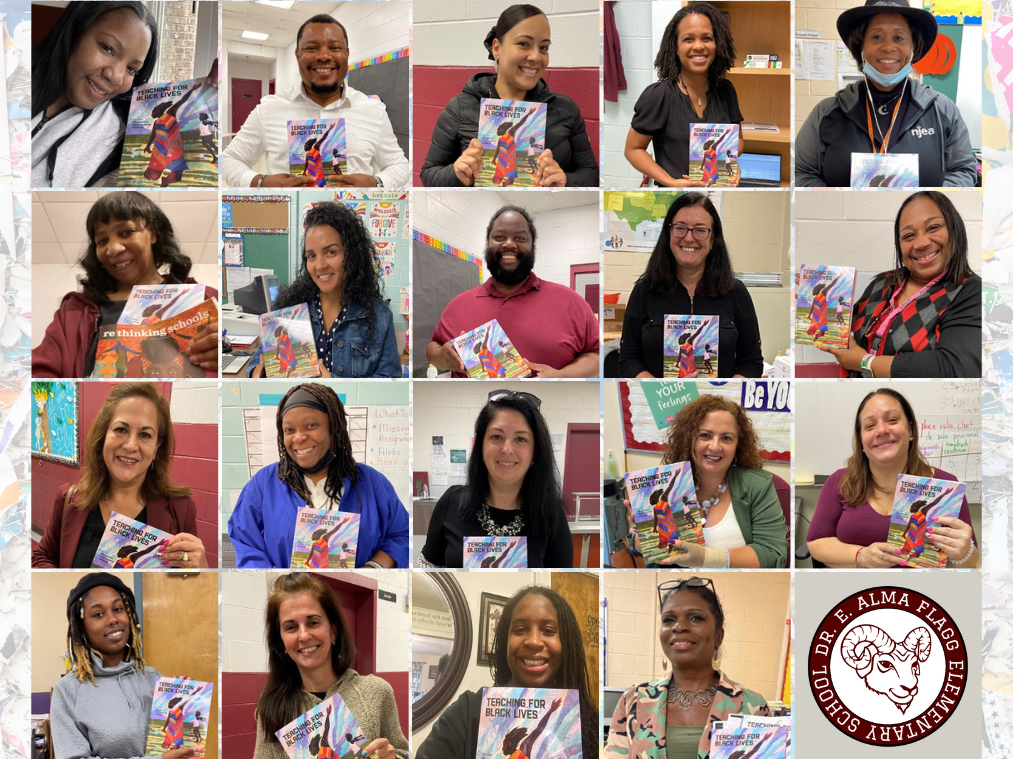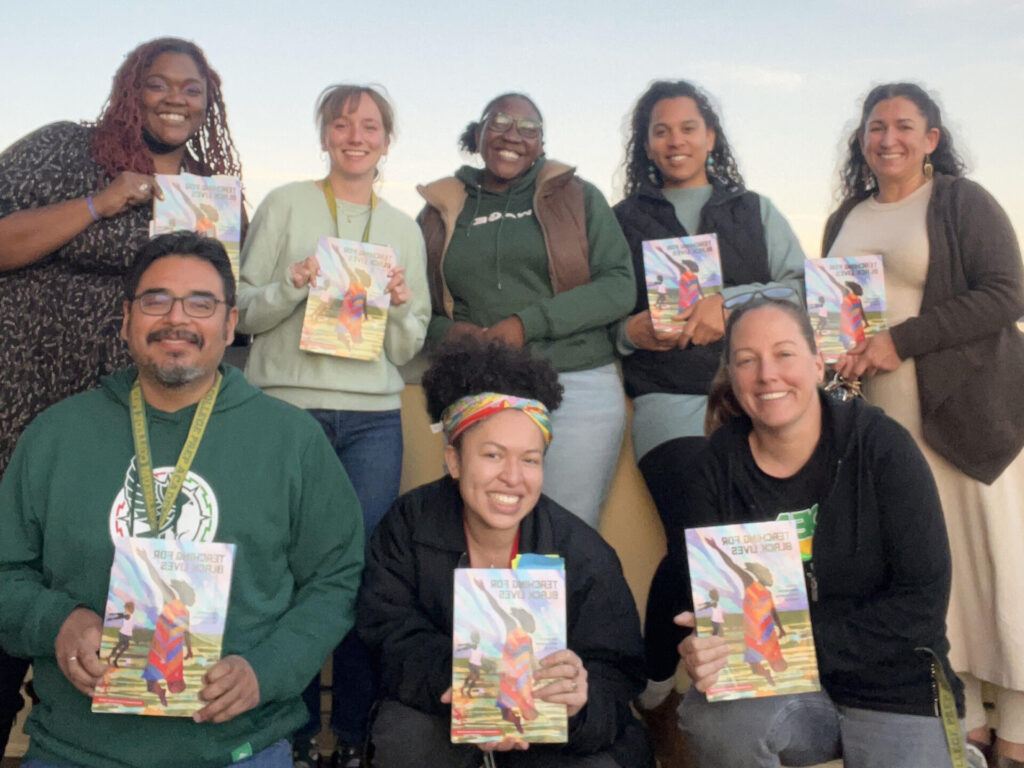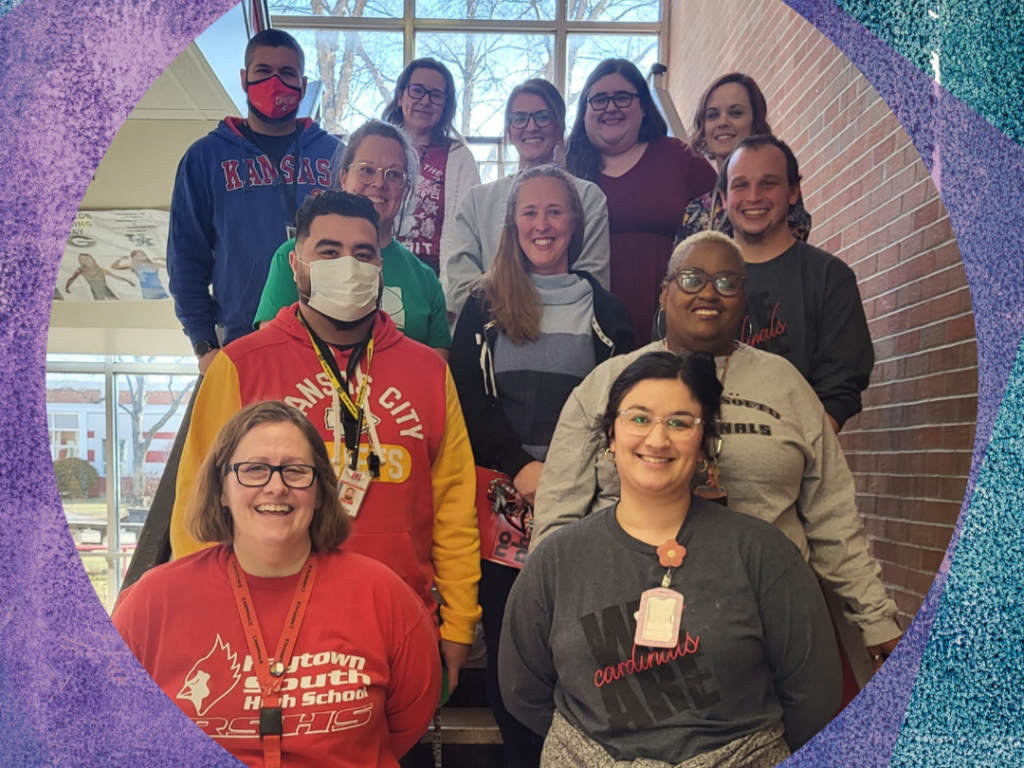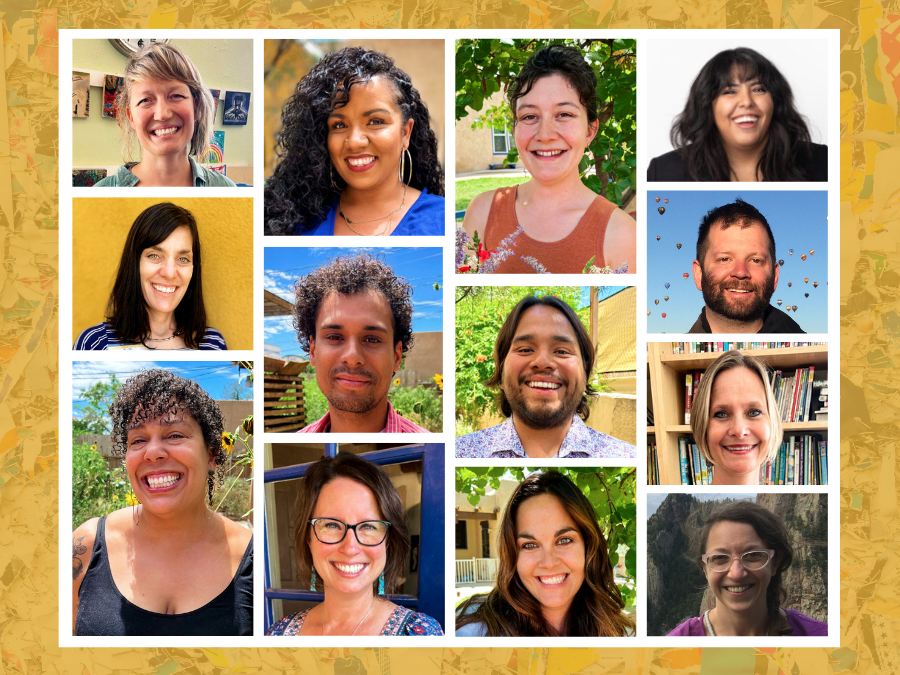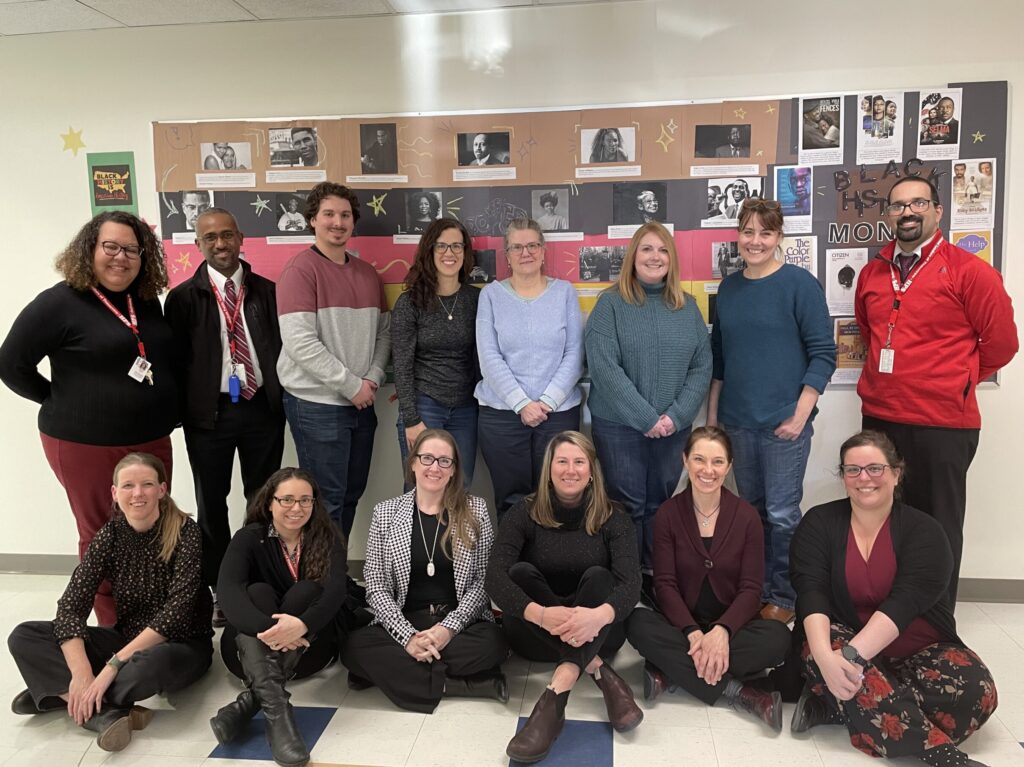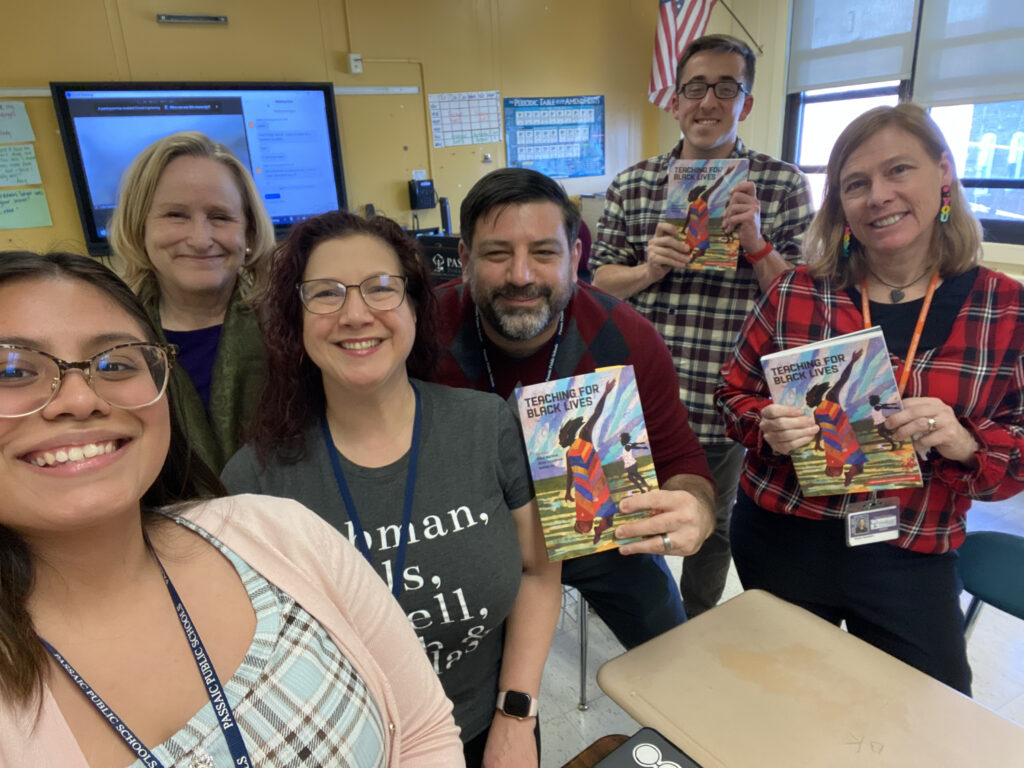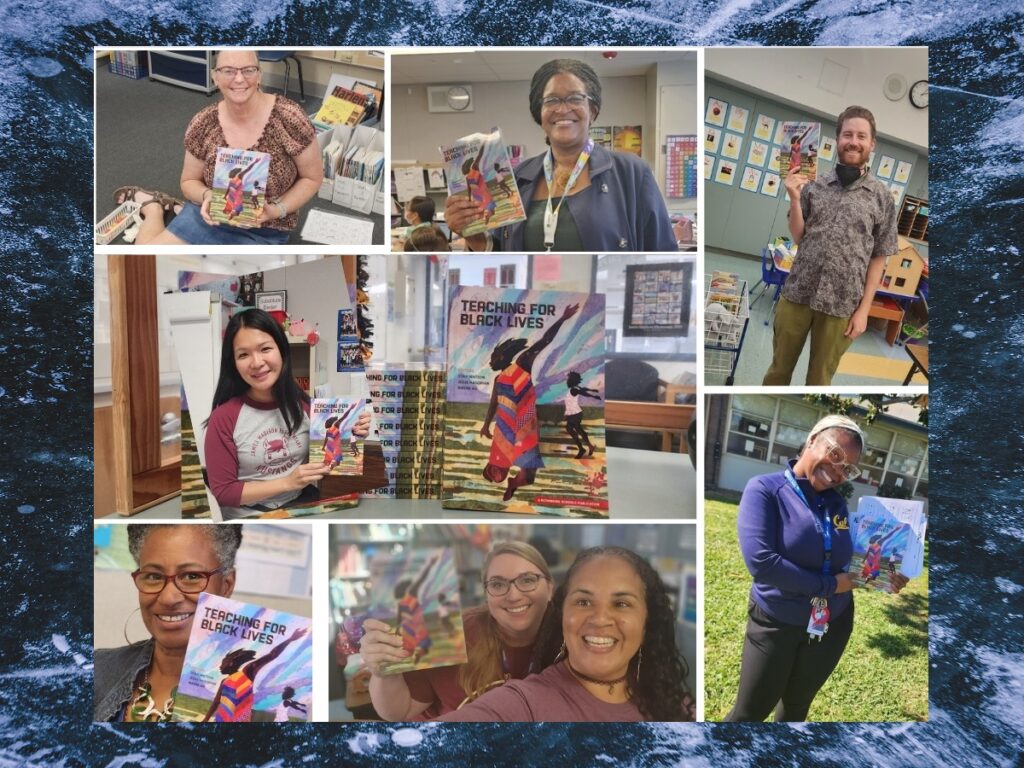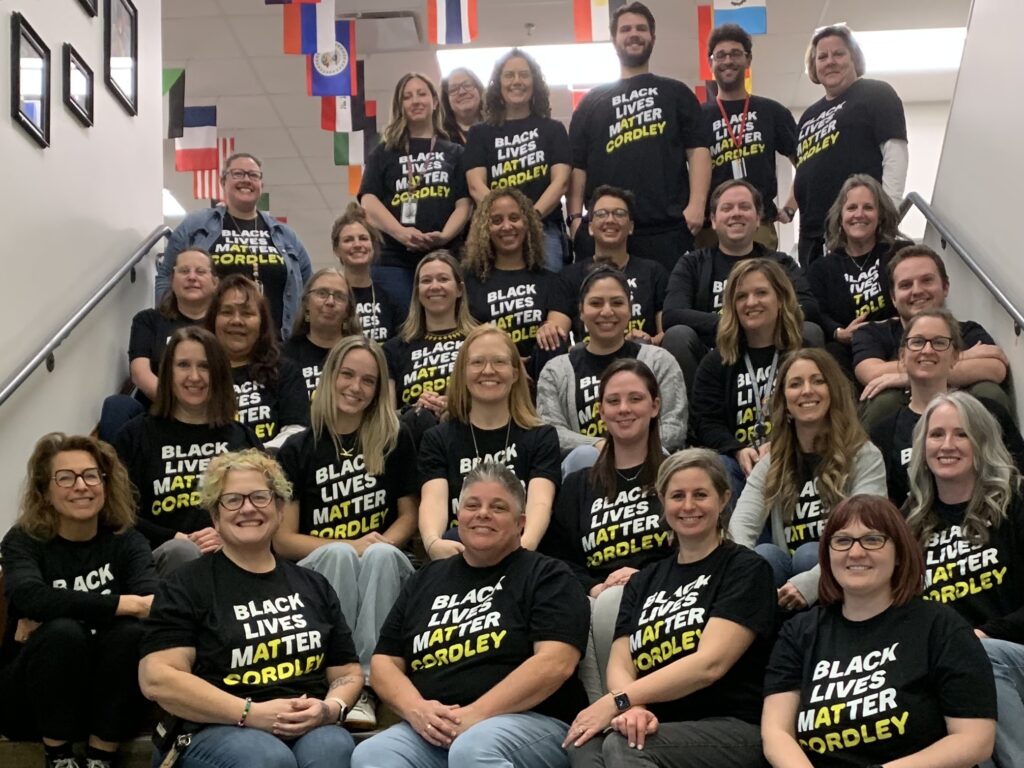Each year the Zinn Education Project hosts Teaching for Black Lives study groups across the United States. Using the Rethinking Schools book Teaching for Black Lives, educators explore how to teach about racism, resistance, and joy in free, teacher-led professional learning communities. Check out this three-minute video on the Teaching for Black Lives campaign.
Teaching for Black Lives Study Groups
Benefits
Thanks to the support of donors, each study group receives free of charge:
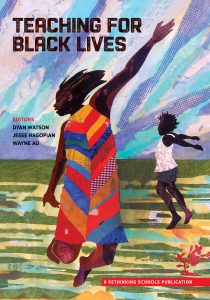 Teaching for Black Lives book for each participant (up to 20), study questions, and meeting facilitation guide
Teaching for Black Lives book for each participant (up to 20), study questions, and meeting facilitation guide- Rethinking Schools magazine subscription for each participant (up to 20)
- Introductory workshop featuring one or more editors of Teaching for Black Lives
- Access to several invitation-only webinars and workshops (panel discussions on current events, curriculum workshops, campaign planning)
- Closing event featuring one or more special guests
- Access to a network of other study groups and social justice educators across the United States
- Dedicated administrative support for study group coordinators
The number of study group applications we accept depends on our funding for the respective year. To date, we have averaged 100 study groups per year.
WHAT PAST STUDY GROUP PARTICIPANTS TOLD US
- It was one of the few things I took on this year that added to my resilience, to my sense of community, to my energy to keep going and do the work. The support that came as we worked together was and is invaluable.
- Having a reliable and deeply thoughtful group of allies in my community was so powerful and supportive during this difficult year. I drew strength every day at school knowing that my study group colleagues were there and would be supportive of my practices.
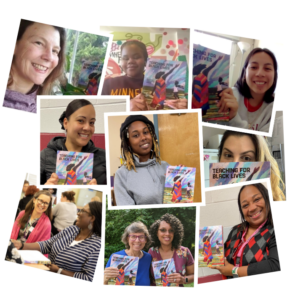 We would commit to trying new lessons, facilitating restorative circles, facilitating difficult discussions with colleagues or with our students and then come back and report to the group. It was motivating knowing that the group would be there to process the results together when we met.
We would commit to trying new lessons, facilitating restorative circles, facilitating difficult discussions with colleagues or with our students and then come back and report to the group. It was motivating knowing that the group would be there to process the results together when we met.- We read together, discussed difficult topics, problem solved, shared insecurities, challenges, struggles, and hope. We held each other accountable and held each other up.
- I have a new lens to look not only at my interactions with students and colleagues and community but at our larger school system and district ALL THE TIME. I feel empowered with all of the resources we have to find another approach or way into whatever we are doing in class. Now my students know that if I am wearing my BLM shirt or Black History Matters shirt at school it is not a performative act — it means that they can hold me accountable to what I have done in and out of class to show that I am living up to that belief.
APPLYING TO FORM A STUDY GROUP
If you are interested in forming a Teaching for Black Lives study group for the 2025–2026 school year or throughout the 2025–2027 school years, please carefully read the sections below.
Goals
The goal is for study groups to focus their study and practice on one or more of the Teaching for Black Lives themes below.
- Centering Black joy in the classroom, not just oppression
- Deconstructing master narratives in the curriculum and teaching people’s history
- Exploring intersectionality
- Identifying and addressing the structural impact of racism at the school level (such as school discipline, staffing, course offerings)
- Identifying and addressing the structural issues of racism at the district level (such as grading policies, dress code, curriculum)
An additional goal of the study groups is to create spaces to nurture mutual support and resistance in the midst of attacks on teaching honestly about U.S. history, racism, and LGBTQ+ identity.
Study Group Expectations
Before applying, your group should consider the following expectations.
- The group has a clear connection to pre-K–12 education.
- You, the study group coordinator — the Zinn Education Project’s liaison with your group — will be responsive and timely in providing our office staff the names, emails, and addresses of all group members to facilitate shipping of books.
- You will hold regular (a minimum of five) meetings based on a collective reading of Teaching for Black Lives and a recent issue of Rethinking Schools magazine.
- You will provide the Zinn Education Project at least three updates (after first convening, mid-year, end of year) on your study group’s work (a form for these updates will be provided).
- If possible, your group will share photos, videos, and other artifacts that reflect your work.
- All study group members will attend at least three invitation-only events, including the national welcoming event and closing event. Generally, there is one special event, workshop, class, or training per month.
- All study group members will redeem their one-year subscription to Rethinking Schools.
- All study group members will complete an end-of-year evaluation and feedback form.
Format Suggestions
The structure and format can vary (see suggestions below) according to the goals of the group. Each group can adapt and/or combine these ideas to create a plan that is just-right for them.
School-, district-based, or statewide book study
Regular meetings to discuss chapters and create individual and/or collective action plans around each of the book’s five sections.
Examples from prior years:
- The Melrose Public Schools (Massachusetts) study group met once a month virtually for an hour and half with reading and assignments in between. Check out their overview.
- The Pullman (Washington) study group was inspired by national discussions around Confederate monuments and statues. They organized to change the name of an elementary school where three study group members work. They were also in conversation with the local public library about a large Jefferson painting near its entrance.
- Educators in Florida created an online community “to build stamina to face the challenges of teaching in this state’s socio-political context. Teachers need to know they’re not alone.”
Curriculum work
Convene a group of educators to work on designing a course, unit of study, or curricular framework that “teaches for Black lives.” Use the book as an analytic framework and some of its lessons as models for their own work.
Examples from prior years:
- The Rochester study group created an educational newsletter with Black & Bilingual Teaching and Learning Resources. Some of their ongoing projects include examining book collections, offering workshops on gender and racism, and creating a curriculum for teaching local Black history all year long.
- The Chicago Teachers Union (CTU) Human Rights Committee of 20 members formed a study group that is embedded into their regular monthly meetings. K–12 educators created a space to “generate and share ideas for promoting anti-racist curricula and practices in Chicago schools.”
- Hayward Unified School District encourages schools to utilize funds made available through the Local Control Accountability Plan to devote to African American programming. The Hayward study group decided to “adopt the Historically Responsive Literacy Framework (HRLF) as something we want to develop lessons around to share from the Teaching for Black Lives perspective.”
Visioning and professional development
Host a study group of school leaders to inform their school’s vision for the future and plans for professional development for their school and/or district.
Examples from prior years:
- San Francisco educators from Daniel Webster Elementary School (K–5) formed a group that includes a teacher from each grade level, plus several support staff members. They brought back learning each month at their grade level meetings and explored ways to supplement their existing curriculum with identity, justice, diversity, and action lessons that celebrate Black excellence.
- The Portland (Oregon) study group of early childhood educators assessed their home visitation questions to make them more culturally relevant. They also examined their rubric for quality diverse children’s picture books in order to curate their classroom libraries. They selected books to create lessons on identity and a sense of belonging to share with colleagues.
- The Saint Paul study group members facilitated Professional Learning Community (PLC) sessions for elementary, middle, and high school teachers at Community of Peace Academy. During these sessions they shared articles from Teaching for Black Lives and modeled lessons they came upon throughout their study group participation.
Participate in Black Lives Matter at School
Use the book to guide a working group committed to building toward or upon a school or district’s participation in the Black Lives Matter at School’s Year of Purpose and Week of Action.
Examples from prior years:
- The study group hosted by the Mesa Education Association in Arizona created a resource document for the members of the Association to support Black Lives Matter at School Week of Action.
- The Providence school district implemented the Black Lives Matter at School Week of Action as an official event with two paid professional development sessions facilitated by Providence study group members.
- The D.C. study group, made up of 14 educators from Brent Elementary (ECE–5), wanted “to help educators reflect on their practice and to identify resources that center our Black students in our classrooms — with an emphasis on what is taught and how classrooms are set up to help students engage in civic life.” They also encouraged and created opportunities for school wide participation in the 2023 Black Lives Matter at School Year of Purpose and Week of Action.
The ideas above are suggestions. We welcome other proposals with other ideas and formats. Read many more snapshots of study groups from across the country.
Teaching for Black Lives Campaign
The Teaching for Black Lives campaign provides teachers support, resources, and encouragement to teach young people honestly about systemic racism and how to organize for justice.
Through teaching materials, classes, study groups, and workshops, educators are invited into a national network of teachers, school librarians, counselors, administrators, and school staff who are defying efforts to ban what students can learn in school by vowing to teach for Black lives.
Applications for 2025–2026 study groups are open.
Take your time to respond to all the questions. We pay more attention to the quality of the response than we do the timing of when it arrived.

